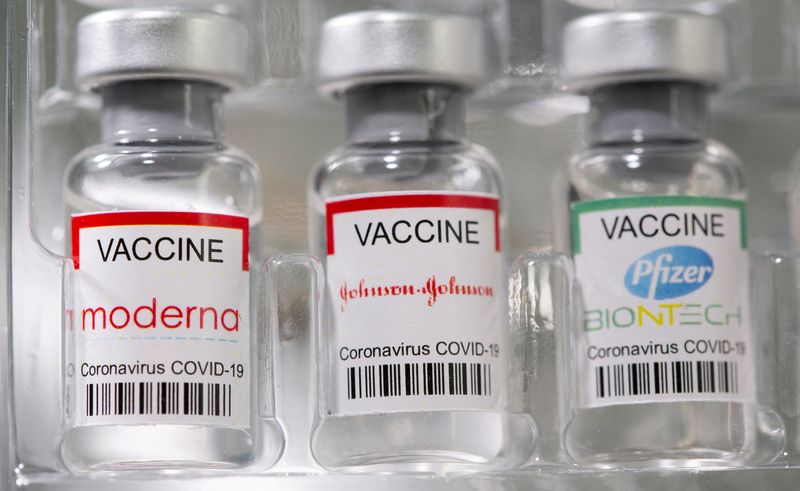NEW YORK (Reuters) – All three U.S.-authorized COVID-19 vaccines appear to be significantly less protective against the newly-detected Omicron variant of the coronavirus in laboratory testing, but a booster dose likely restores most of the protection, according to a study released on Tuesday.
The study from researchers at Massachusetts General Hospital (MGH), Harvard and MIT that has not yet been peer reviewed tested blood from people who received the Moderna, Johnson & Johnson and Pfizer/BioNTech vaccines against a pseudovirus engineered to resemble the Omicron variant.
The researchers found “low to absent” antibody neutralization of the variant from the regular regimens of all three vaccines – two shots of the Moderna or Pfizer/BioNTech vaccines or one of J&J’s single-dose vaccine.
But the blood from recent recipients of an additional booster dose exhibited potent neutralization of the variant, the study found.
The scientists also suggested that Omicron is more infectious than previous variants of concern, including about twice as transmissible as the currently dominant Delta variant, which may soon be overtaken by Omicron.
The results are in line with other studies recently published. Researchers at the University of Oxford said on Monday that they found the two-dose Pfizer and AstraZeneca COVID-19 vaccine regimens do not induce enough neutralizing antibodies against the new variant.
BioNTech and Pfizer said last week that a three-shot course of their COVID-19 vaccine was able to neutralize the new Omicron variant in a laboratory test, but two doses resulted in significantly lower neutralizing antibodies.
Moderna and J&J have yet to release any of their own data about how the vaccines perform against the new variant. J&J declined to comment on the new study and Moderna did not respond to request for comment.
(Reporting by Michael Erman, additional reporting by Julie Steenhuysen; Editing by Caroline Humer and Bill Berkrot)






















